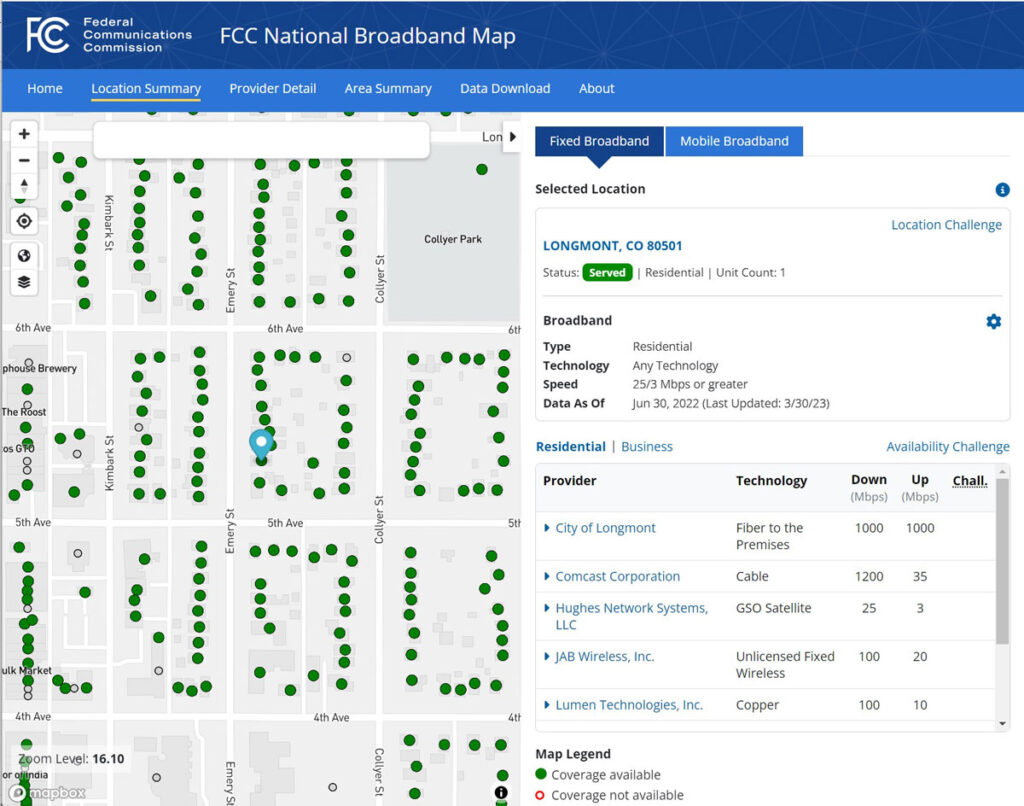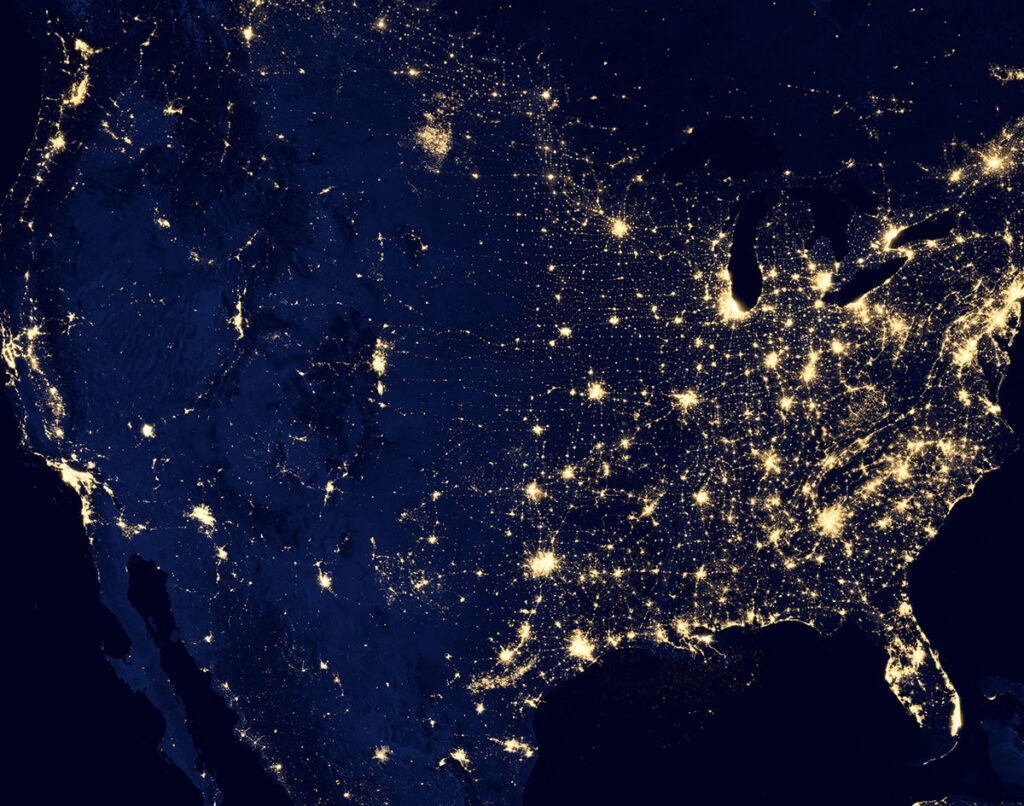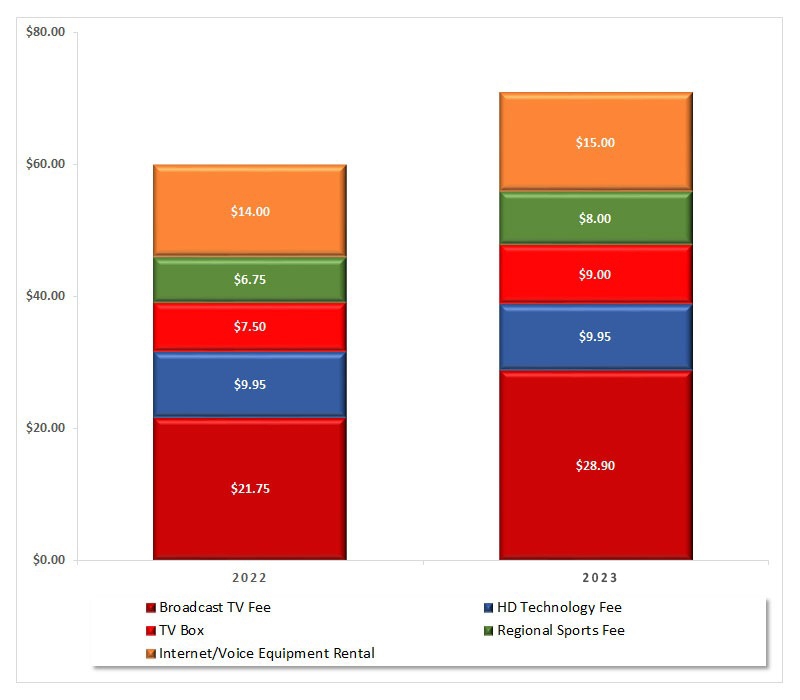Multifamily Bulk Internet
Multifamily Bulk Internet options for MDUs have expanded. Who is the best Internet provider for Multifamily MDUs? It primarily depends on four factors – speed, price, reliability and what Internet Providers are available at your specific address.
Multifamily bulk internet competition is heating up with more Internet Service Providers (ISP) options. What used to be a monopoly of only one or two options for Internet service – Cable like Comcast Xfinity, Spectrum or Teleco like Verizon, CenturyLink DSL. Has now grown to half a dozen or more Internet options for some areas.
With 28 years of experience, you can trust our founder Brian Cavanaugh to only give unbiased expert Internet advice. StreamWise Solutions is not an Internet Service Provider. We are expert Consultants and Installers that help you save money on TV & Internet every month. Our hundreds of 5 star Google reviews will tell you why you should take our advice…

Who provides Bulk Internet in Multifamily Properties?
Most locations can get Fiber, Cable, Telco or point to point Internet. Sadly old Cable and Telco Internet providers are outdated and have poor customer service. Widely available Telcos are too slow for most MDUs. Having a high speed Internet monopoly for decades has led Cable ISPs like Comcast Xfinity and Spectrum to set high prices, add data caps, increase modem rental fees, rage a marketing mis information campaign and have the lowest customer service ratings in any industry.
However in 2025 we are finally seeing Internet competition and an explosion of new high speed Internet Provider options! Choose from Fiber, point to point, Telco or Cable high speed Internet in your Multifamily property.
Which Colorado Cities have high speed Internet?
Quantum Fiber, BAM Fiber, Google Fiber, Ting, Vero, ALLO and others are already in every major Colorado suburban city. Google Fiber is coming to Lakewood, Wheat Ridge, Golden, Adams County and Westminster Colorado. Ting Fiber (Centennial & Colorado Springs) provides Fiber internet to their respective Colorado cities. Some municipal Fiber options are NextLight (Longmont), Connexion (Fort Collins), Pulse (Loveland). Starry, LiveWire, WiFiHood, etc. have internet offerings in most urban Denver areas.
Remember the Best Internet Provider in Denver, will also cover Denver suburbs and the following cities too: Arvada, Aurora, Colorado Springs, Highlands Ranch, Lakewood, Littleton, Longmont, Parker, Thornton, Westminster, Fort Collins, Loveland, Greeley, Boulder & more. All of these Denver suburbs have Fiber Internet options!
Who is the best Internet Service Provider in my city?
Quantum Fiber or any Fiber Internet is our top recommendation if you live in the Denver Metro area and have a Fiber Internet options available. If you can get Fiber at your address it will be the best Internet Provider options for the Denver area. Fiber Internet Providers like Quantum, Google, BAM, TING, Vero, ALLO, etc. are rapidly expanding to lots more Colorado locations.
How do I know which ISPs are available at my location?
Why waste time calling Internet providers that are not available at your location? The best way to check your address to see what ISPs are available is to use the FCC’s Broadband Service Map (see sample picture for Longmont, Colorado). Enter your address and you should see the best providers for your area including maximum download and upload speeds.
While Longmont residents have multiple options, the clear winner (and top 3 ISPs in the nation) is NextLight Fiber – the City of Longmont’s municipal fiber offering.

What Internet speed do I need?

The great thing about more competition is faster speeds and better price. But be careful. It’s not all about speed. In fact, Xfinity (cable) is notorious for aggressively upselling more speed, even when more speed wasn’t requested or needed. ISPs spend millions of dollars on ads telling you why you need more speed. Why? Because they make more money every month when you buy a higher speed tier.
For our customers, the solution is getting better Wi-Fi throughout the property. For example, most people do not notice the difference between 500 MBPS and 1000 MBPS (megabits per second) download speed if you have the right hardware.
With the right internal Wi-Fi 6 Mesh Network, you could cut your internet bill in half every month!
Internet speed recommendations by family type
- In apartments, we often recommend speeds of 200 MBPS depending on usage for streaming, gaming and work.
- For most seniors, because there are few simultaneously internet connected devices, most only need 200 MBPS.
- For doing shared whole property wifi you will want multi gig super fast speeds since they will be shared.
Compare Internet Providers
Balancing price, speed, reliability and service quality is no easy task. Consequently, many of the customers we help find themselves bouncing between providers losing their time, money and sanity looking for the best Internet Provider. Additional considerations for modem/gateway rental fees, upload speeds and data caps should be considered.
We typically recommend (in order from best to worst) – Fiber, followed by Cable/Xfinity or Fixed Wireless, with Satellite and DSL being at the bottom. If cable is the best option in your city, keep checking your address for new broadband alternatives, or simply Google your local Fiber provider and call them directly. Most Fiber providers will actually bring new Fiber to your MDU or Multifamily building since there are multiple residents that will benefit!
Multifamily ISP Comparison Chart
To help you evaluate the best Internet Providers, consider these pros and cons of each ISP.
| ISP Type | Consumer Price (monthly) | Pros | Cons |
|---|---|---|---|
| 1. Municipal City Fiber | $40-$70 | – Gig Speeds – Reliable – No Data Caps – Symmetrical speeds – Money goes back to City – Local Support | – Limited availability – Router rental fees |
| 2. Telco Fiber – Quantum, BAM, Google, Vero, Allo, etc | $40-$70 | – Less than Cable – Price for life – Gig Speeds – Reliable – No Data Caps – Symmetrical speeds | – Average customer service |
| 3. Cable – Xfinity* | $50-$100 | – Widespread availability – Proven technology – Variety of speed tiers – Gig+ speeds available – May be packaged with a cell phone plan | – Data Caps – Deceptive sales practices – Equipment rental fees – No “Price for Life” – Poor upload speeds – Occasional outages – Poor customer service |
| 4/5. Fixed Wireless & 5G Fixed Wireless – T Mobile, Verizon, AT&T | $35-$75 | – Lower price – No rental fee – Save more money if bundled with cell phone | – Limited availability – Still in its early phase – Wireless, so reliability is dependent sight to towers – Device positioning is not always optimal |
| 6. Low-orbit satellite – StarLink, Amazon Kuiper | $80-$120 | – Best for RVs or rural areas – Decent speeds – Starlink is better then Hughesnet & Viasat | – Expensive – Limited availability – Still in its early phase – StarLink Wi-Fi router bad – Need to install Dish high – Satellite can have interference drops |
| 7. Satellite – Rise, HughesNet, Viasat | $50-$120 | – Only good for rural areas with no low-orbit satellite option | – Poor value – Contracts – Lower speeds – Data caps – Throttling – Influenced by the weather |
| 8. Telco DSL – Centurylink | $40-$70 | – Lower monthly rate – Price for life – Widespread availability | – Being phased out – Slow speeds – Interruptions – Not reliable – Poor customer service |
Conclusion: Best Internet Provider for Multifamily
When selecting the best Internet Service Provider (ISP) you need to consider price, speed and reliability. Your Internet network is the backbone for all electronic devices. In the future we will only have more streaming, work, school, gaming, and smart home devices connected to the Internet. If you don’t fix the problem now, it will only get worse. Most neighborhoods now have a Fiber ISP option which is best, with Quantum Fiber even offering free install, free modem & $100 off!
We always want a quick and easy fix. Just like the Internet, WiFi and Networking aren’t easy, neither is fixing it. Faster and better Internet involves a process of elimination, and there are a lot of variables involved. If you can check off the items below in order it is a guaranteed fix to your slow Internet and WiFi issues. You will need to consider what options are available at your location.
Here is everything you need for good Internet and Streaming
- Get a better Internet Provider like Fiber – See if Quantum Fiber is available
- Internet Speed – 500-1000 MB speed, if you can pay $70 or less per mo
- Use WiFi 6 Mesh to eliminate dead spots in or around your property
- Network Wiring – run Ethernet wiring & hard wire to Ethernet wall jacks to get highest speeds
- Better Streaming Hardware Newer PC, Tablet, Streaming Devices will have a WiFi 6 receiver
Save Your Sanity

